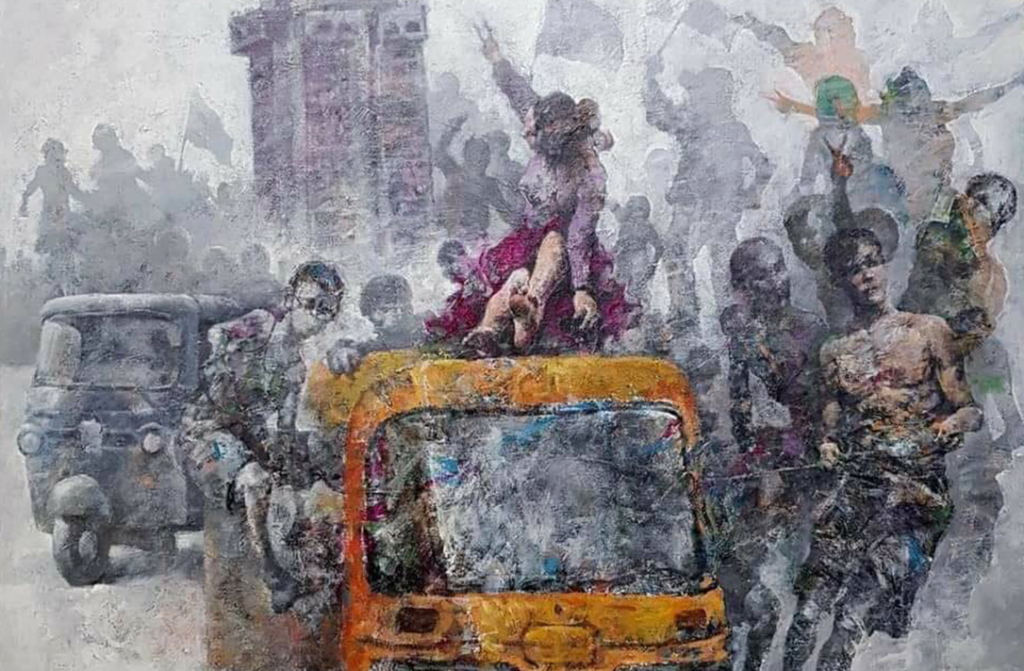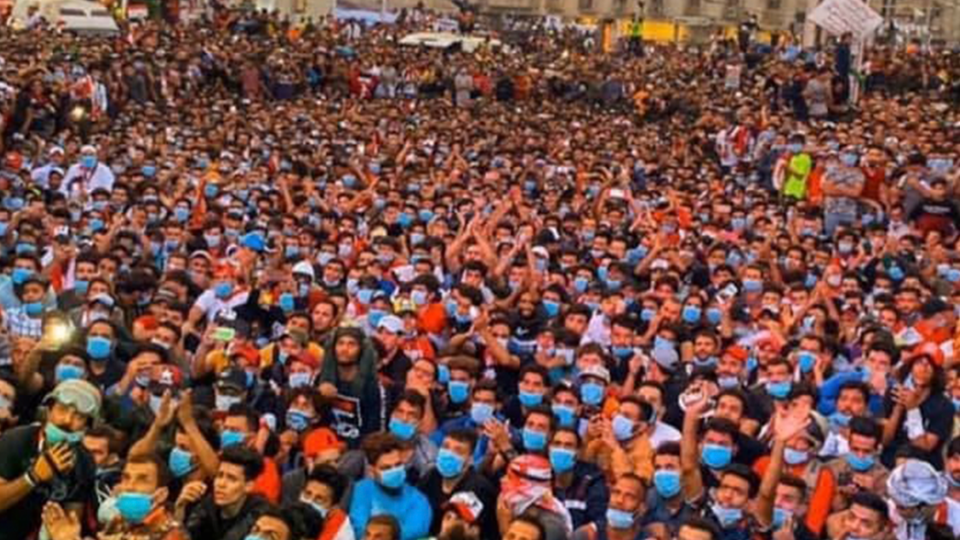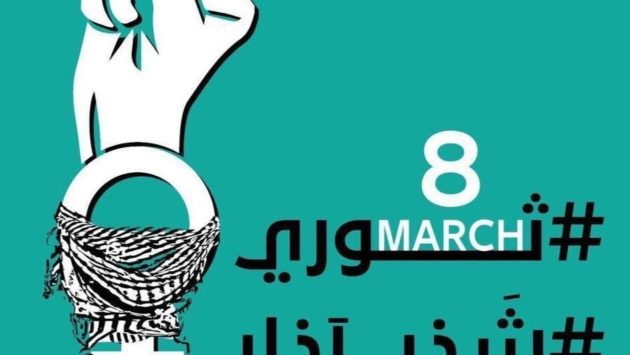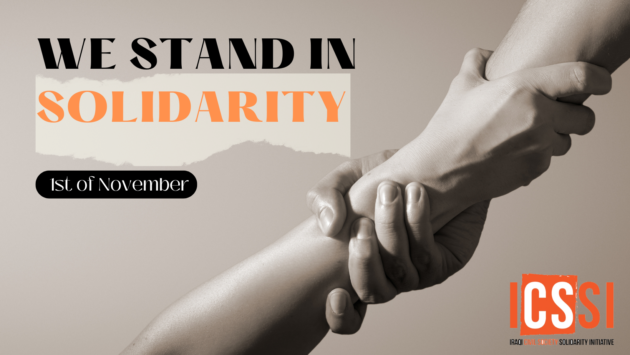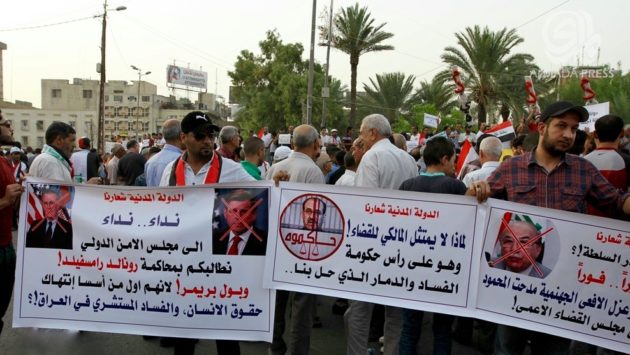Iraqi Youth Demands For A New Democratic Future Must Be Met With Dialogue Not Guns
Over the last weeks, unprecedented massive demonstrations erupted in Baghdad and other central and southern Iraqi cities. The protestors, majority are marginalized youth and women, demands a wider spectrum of issues, including economic reform and employment, reliable public services, prudent and impartial governance, an end to corruption, credible elections and reform of the political system including the amendments to the constitution.
November, 2019
International organizations and civil society organizations denounce constant violations of human rights
The waves of demonstrations were met with a securitized crackdown and massive human rights violations committed by security forces and paramilitary groups. Several Human Rights bodies, including UN, Amnesty International and HRW reported the massive human rights violations documenting more than 330 people killed and more than 15,000 wounded by government and militant groups who have been using live ammunition, machine guns, stun grenades, anti-riot tanks, and military grade tear gas to quell the peaceful protests. Several human rights organizations documented on several occasions, arrest of activist and HRDs, shut down of the Internet, prevention of journalists and human rights organizations from reporting human rights violations, and restrictions of protesters rights to protests and peaceful assembly.
Regional human rights groups issued statements demanding the Iraqi government; the immediate release of all peaceful protestors, respect the right to access internet and information, and insure human rights defenders are able to practice their work freely and without restrictions. Iraqi civil society actors in Bagdad launched an initiative calling for the immediate resignation of the current government and the formation of a non-partisan interim government with exceptional authorities, and holding perpetrators accountable. A second initiative ld by civil society actors in Irbil called for a road map for reform to the political system in Iraq.
The United Nations Assistance Mission for Iraq (UNAMI) initiated and initiative engaging several parties, actors and authorities in consultations principled in adhering state actors in the respect of their commitment to human rights standards including the protection of right to life, right to peaceful assembly, freedom of expression, calling authorities to practice maximum restraint in handling protestors, and to conduct an independent and impartial investigations on human rights violations and hold accountable perpetrators of this actions.
Most recently, the OHCHR Iraq 34th UPR review debated human rights situation by several states and non-state actors, with several calls for the Iraqi authority to protect the protestors and respect its international human rights obligations.
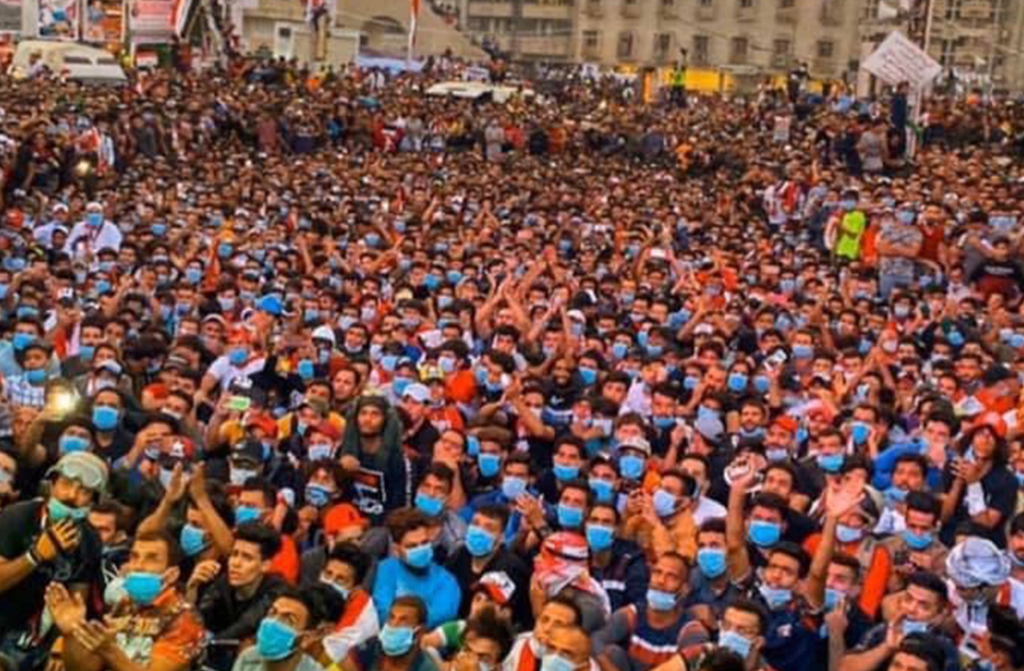
A claim for social inclusion and political democratic governance
Youth want and claim a voice, social inclusion and desire a better social and political democratic governance. Despite the repressive state security forces use of lethal violence, protestors demonstrated the creative use of non-violent strategies and tactics, including civil disobedience, amongst other innovative community organizing and mobilization. Youth were able to gain the support of various bodies in Iraq including the teachers Syndicates, students, artists, academics, Lawyers, religious authorities, unions, and Iraqi citizens in diaspora. Iraqi youth are now at the center of the evolving demonstrations in an unprecedented protests and organization.
While mainstream media heavily invested in reporting the unfolding events, yet little analysis been brought to the social youth movement demands for justice and economic reforms that transcends the existing sectarianism of the state formation and the call for social and economic justice.
According to Ruba Ali al-Hassani, Iraq watcher and PhD candidate, youth are calling for a structural change in the governing system: “If there is one thing that unites Iraqis, it’s this: the corrupt political elite, regardless of denomination, do not represent them, and are not invested in political and social progress”.
The current momentum brought by youth and activists evolving awareness of their marginalization empowered by a new sense of belonging to a collective identity will lead to confrontation and negotiation between the old structure of sectarian powers and a new demands for citizenship and social justice.
Gailan Hamzah, a Human Rights and civil society activist, expressed his fears that demonstrators, activists, and HRDs are yet to face a stepping point and bleak future in demanding their rights “this is a turning point for freedom of expression in Iraq, and we might lose our freedom of expression that we are now seeing same tactics used during Saddam regime, as they are now knocking on doors asking about activists to spread fears amongst people”.
The role of women leading public protest
Iraqi women movement are playing a major role in the Iraqi protests. Women activists took an active role in leading public protests, leading voluntary work and community organizing, providing medical assistance to injured protestors, along with putting women demands at the political front. According to Amal Kabashi, Coordinator of the Iraqi Women’s network, the Iraqi women activists are courageously taking to the street demanding social justice. “We were chanting for equality, democracy, and justice. Our aim is to change the whole system and build a democratic civil society that respects human rights”.
Iraqi activists used several tactics to express their demands, including Nonviolent actions to occupy the public space. Yet, many stories documented the growing youth protestors demanding genuine change, promoting vibrant national identity. The protestors continue to show their resilience, persistence, and commitment to peaceful means using online platforms, street arts and graphite, voluntarism, sports, amongst other innovative approaches to send a message of hope for a better society.
